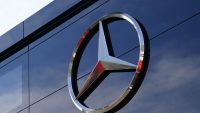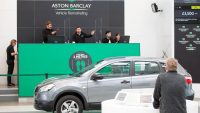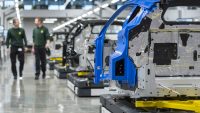Volkswagen suffered a 30 per cent fall in profit during the first quarter after booming business in Europe and North America failed to offset sales dropping in China.
The German carmaker is facing increasing competition from home-grown models in the Asian country, and today reported a post-tax profit fall to 4.7bn euros (£4.1bn) from 6.7bn euros (£5.9bn) versus the same period in 2022.
The number of vehicles it sold rose by 7.5 per cent to 2.04m.
Revenue, meanwhile, jumped by 21.5 per cent to 76.2bn euros (£67bn) as VW saw strong demand and increased pricing power — customer willingness to fork out more for its cars.
But it sold 14.5 per cent fewer vehicles in China, which is the world’s largest car market, where competitors such as BYD are rapidly developing new electric and hybrid vehicles at competitive price points and competing with foreign brands.
BYD Auto, owned by battery maker BYD Co, edged ahead of Tesla in total 2022 sales at 1.9m vehicles. Half were hybrids, while Tesla’s fleet is pure electric.
Volkswagen said it was ‘confident’ that an expanded model range and more China-specific technological features would mean deliveries to the country would ‘recover during the remainder of the year’.
The company plans to invest 1bn euros (£879m) in a new centre for electric car innovation in the central Chinese city of Hefei.
VW said it was systematically pushing ahead with its move into electric vehicles, selling 141,000 battery-only cars during the quarter, or about seven per cent of all its deliveries.
It confirmed its profit outlook for the year and said strong demand for its products was reflected in an order book of 1.8m vehicles in Europe, including 260,000 battery-electric vehicles.
Volkswagen’s ID.7 Vizzion is pictured at top being displayed during the Auto Shanghai 2023 show (Credit: Ng Han Guan/AP)


































